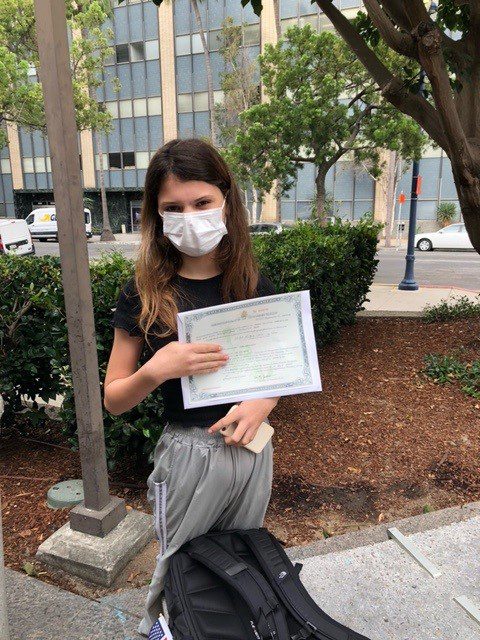Immigration and Relocation to the USA
Dotan Cohen Law Offices is committed to helping our clients immigrate and relocate as smoothly as possible, whether our clients are individuals, small companies, or large corporations.
Our corporate and business options include:
- L-1 Visa – For intracompany transferees who are executives, managers, or employees with specialized knowledge. The applicant must work at least one year of the previous three for the foreign company before transferring to the US branch, subsidiary, or other related company. There are additional elements to prove if the US branch is a new office.
- E-1 Visa – For employees of foreign companies engaging in substantial trade with the US. The company must first be certified, after which each worker must qualify. Only available to countries that are part of the relevant treaty with the US.
- E-2 Visa – Investor visas for citizens of qualifying countries, who are coming to the US to direct and develop the enterprise. The investment must be substantial.
- H-1B Visa – A popular visa for foreign experts working in the US. With certain exceptions, this visa is subject to a cap, and requires a bachelor’s degree or equivalent. There is a separate category for international fashion models.
- O-1 Visa – For foreigners with “extraordinary ability” in business, or other fields including arts, athletics, entertainment, and the motion picture industry. The applicant must be coming to US to work temporarily in the field of their extraordinary ability. An employer or other sponsor, often an agency, is required.
- Other less common visas including H-2B (temporary foreign workers), R-1 (religious workers), B-1 In Lieu of H-1B (certain short-term temporary workers), H-3 (trainees), P-1 (international athletes), and more.
- J-1 and Q-1 cultural exchange program. The sponsor must be licensed by the respective program. The applicant, among other qualifications, must be at least 18 and demonstrate a proficiency in English.
- Employment Based Green Cards including EB-1, EB-2 and EB-3, and others. These applications often involve a lengthy waiting period, and/or require Labor Certification.
- EB-5 Immigrant Investor Program – For persons investing $1 million in a US enterprise, or $500,000 in a targeted employment area. The investment must also create and maintain at least 10 jobs for qualified US workers.
- Derivative visas or Green Cards for spouses and children of the above principal applicants.
Common options for individuals include:
- Family Based Green Cards – Green Cards for immediate relatives of US citizens, and other qualifying relatives of US citizens or Lawful Permanent Residents (Green Card holders). Consular processing for relatives abroad, and Adjustment of Status for relatives in the US.
- Re-entry Permits – For Green Card holders spending extended periods outside the US.
- Returning Resident Visas – For Green Card holders who have remained outside the US for more than one year, who wish to return to the US as Lawful Permanent Residents.
- Immigration for Diversity Visa Lottery winners and their families.
- US Citizenship through naturalization and US Citizenship through parents.
- Removal of Conditions on Residence for Conditional Residents.
- Replacement of Green Cards for lost, stolen, or expired Green Cards.
- Non-immigrant visa issues including problematic B-1/B-2 Visitor Visas, F-1 and M-1 Student Visas, and the J-1 Cultural Exchange Visitor Program
Forms & Useful Information
- Question: Will a criminal offense prevent me from receiving a tourist visa in the United States?
Answer: Not every criminal offense leads to non-eligibility for an American tourist visa. - Question: If I applied for an L-1 work visa and was rejected, can I apply for another similar request immediately after that?
Answer: Yes. - Question: Citizens of which countries are eligible to apply for an investment visa?
Answer: The list of countries who’s citizens are eligible to apply for an E-2 investment visa can be found here. - Question: I am engaged or married to a US citizen, can I get US citizenship?
Answer: Yes, you can, but first you will have to get married, then apply for a green card (Legal Permanent Resident status, LPR) and after 3 years as LPR you may apply for a US citizenship. - Question: My green card expired, am I still a permanent resident of the US?
Answer: You may receive a new green card subject to standing with the green card requirements, and in particular having your center of life in the US. - Question: I am a US citizen, and I have children under 18 born abroad are they US citizens?
Answer: Your children may apply for US citizenship in few different ways. - Question: I won the Diversity Visa Lottery (Green Card Lottery), does this mean that I won a green card?
Answer: No, it does not. Winning the green card lottery means you won the right to apply for a green card without a sponsor, employer or a qualifying family member. Make sure you are eligible for a Diversity Visa (green card) before you apply for it. - Question: A company in the US wants to hire me, can I work in the US or immigrate to the US?
Answer: There are more than a dozen ways to work and immigrate to the US based on work. Having a sponsor (Employer in this case) is almost always a mandatory requirement but each visa or green card has many other requirements that you must qualify for. Make sure you are eligible for the work visa you need or a green card before you apply for it.



